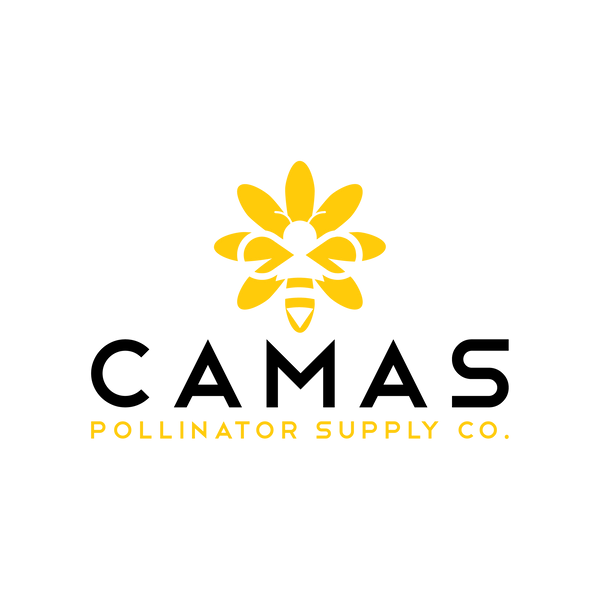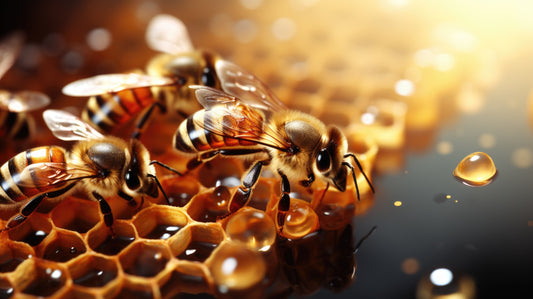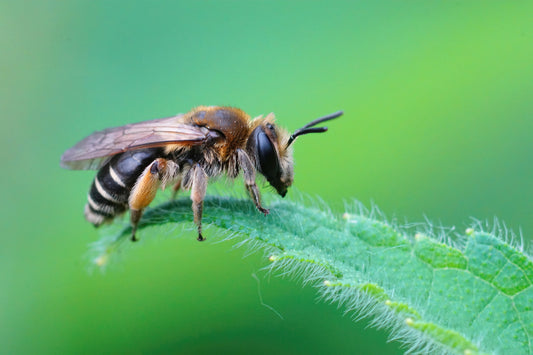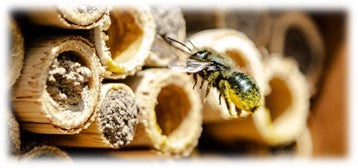
Buzzing from flower to flower, bees may seem like they're simply going about their daily tasks, but these tiny insects are playing a monumental role in maintaining the balance of our ecosystem. Often overlooked and sometimes feared, bees are nature's unsung heroes, working tirelessly to pollinate our plants and crops. Bees are often overlooked and under-appreciated members of our ecosystem. Their contribution is so significant that without them, our food system and biodiversity would be in serious jeopardy. We are about to dive into the fascinating world of bees, exploring their crucial role in our ecosystem, the threats they face, and how we can all play a part in ensuring their survival.
Bees are the world's most important pollinators, contributing to the growth of fruits, vegetables, and flowering plants. They are responsible for pollinating approximately 70% of the crops that feed 90% of the world, which means that our survival depends on their daily tasks. However, bees are facing numerous threats, including habitat loss, climate change, and the use of pesticides. These threats have led to a significant decline in bee populations worldwide, which could have devastating effects on our ecosystem and food supply. Therefore, it is crucial that we take steps to protect and conserve these vital creatures.
There are estimated to be over 4,000 species of bees in the United States alone. There are some that get much more attention than others. The honeybee oftentimes, gets all the attention and credit. Don’t get me wrong, honeybees can be great, and get lots of pollinating paparazzi.

However, it is argued that the native bees are much better pollinators. Because many native bees don’t have “tidy” pollen pouches on their legs, they are messier than honeybees, making them more efficient at spreading the pollen around. Research shows that tomato farmers are likely to see 50 percent more tomatoes that are two times bigger if they get regular bumblebee visits, vs only having honeybees. So, let us never forget about those native bees.
How does it all work? Bees are the primary agents of pollination, transferring pollen from the male parts of a flower to the female parts, thus enabling fertilization and the production of fruits and seeds. Without bees, many of our favorite fruits and vegetables, such as apples, almonds, and strawberries, would become scarce and expensive. Moreover, bees also play a crucial role in pollinating plants that provide habitat and food for other wildlife, thus maintaining biodiversity.
Credit: American Museum of Natural History
Peduncle: The stalk of a flower.
Receptacle: The part of a flower stalk where the parts of the flower are attached.
Sepal: The outer parts of the flower (often green and leaf-like) that enclose a developing bud.
Petal: The parts of a flower that are often conspicuously colored.
Stamen: The pollen producing part of a flower, usually with a slender filament supporting the anther.
Anther: The part of the stamen where pollen is produced.
Pistil: The ovule producing part of a flower. The ovary often supports a long style, topped by a stigma. The mature ovary is a fruit, and the mature ovule is a seed.
Stigma: The part of the pistil where pollen germinates.
Ovary: The enlarged basal portion of the pistil where ovules are produced.
Unfortunately, bees are facing numerous threats. Habitat loss due to urbanization and agriculture is one of the main threats, as it reduces the availability of flowers, which bees rely on for food. Pesticides, particularly neonicotinoids, are another major threat, as they can kill bees or impair their ability to reproduce, navigate, or forage for food. Climate change also poses a significant threat, as it can disrupt the timing of flower blooming, leaving bees with fewer food resources.
There are several ways we can help protect bees. Planting a pollinator-friendly garden is one of the most effective ways. This involves planting native plants that provide nectar and pollen for bees and avoiding the use of pesticides. We can also help by creating habitat for bees, such as bee hotels, and by supporting local beekeepers who practice sustainable farming methods. Lastly, we can advocate for policies that protect bees and their habitats. Speaking about it also goes further than you might think. Telling a friend about the small pollinator-friendly garden you have, and its benefits, just might start a positive domino effect that will never stop.
Ultimately, bees play a crucial role in our ecosystem, and their decline due to various threats is a cause for concern. However, by understanding the importance of bees and taking steps to protect them, we can help ensure their survival and the health of our ecosystem. Whether it's planting a pollinator-friendly garden, creating habitat for bees, or advocating for bee-friendly policies, every action counts. After all, our future depends on these small but mighty pollinators.







